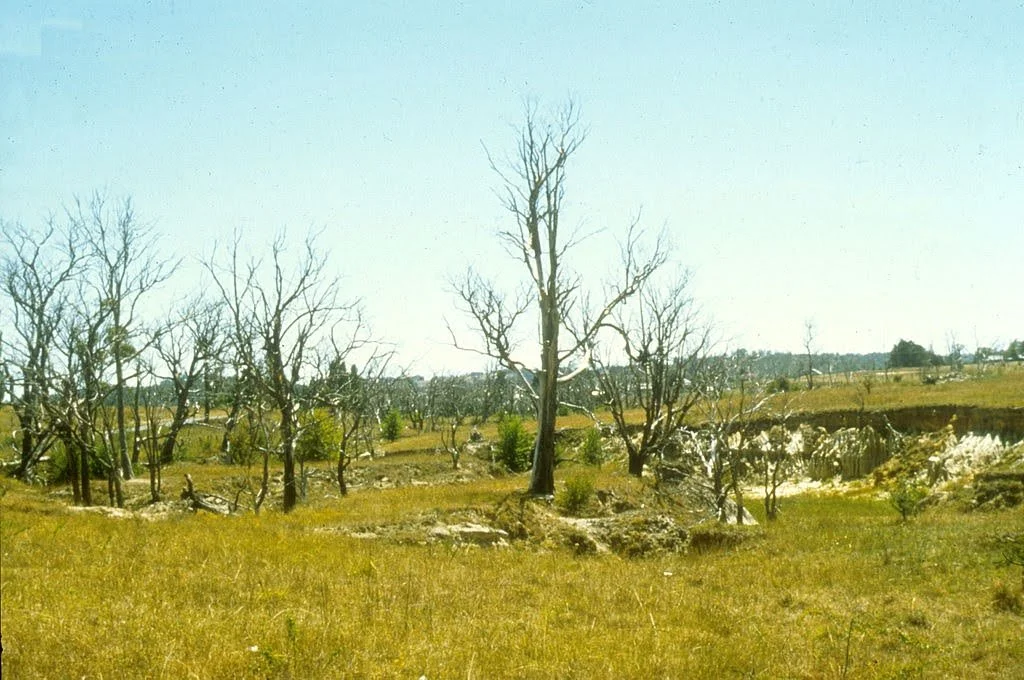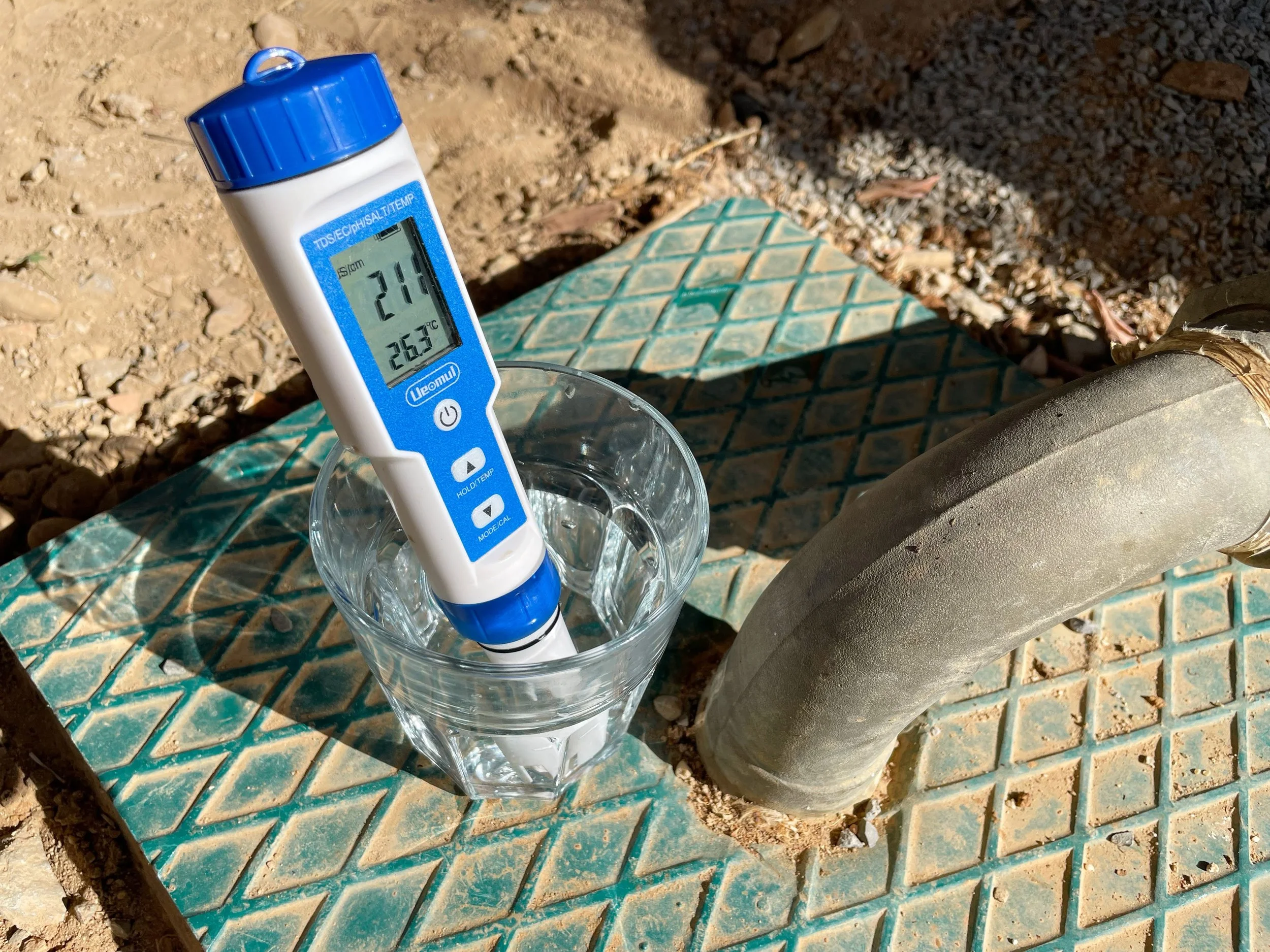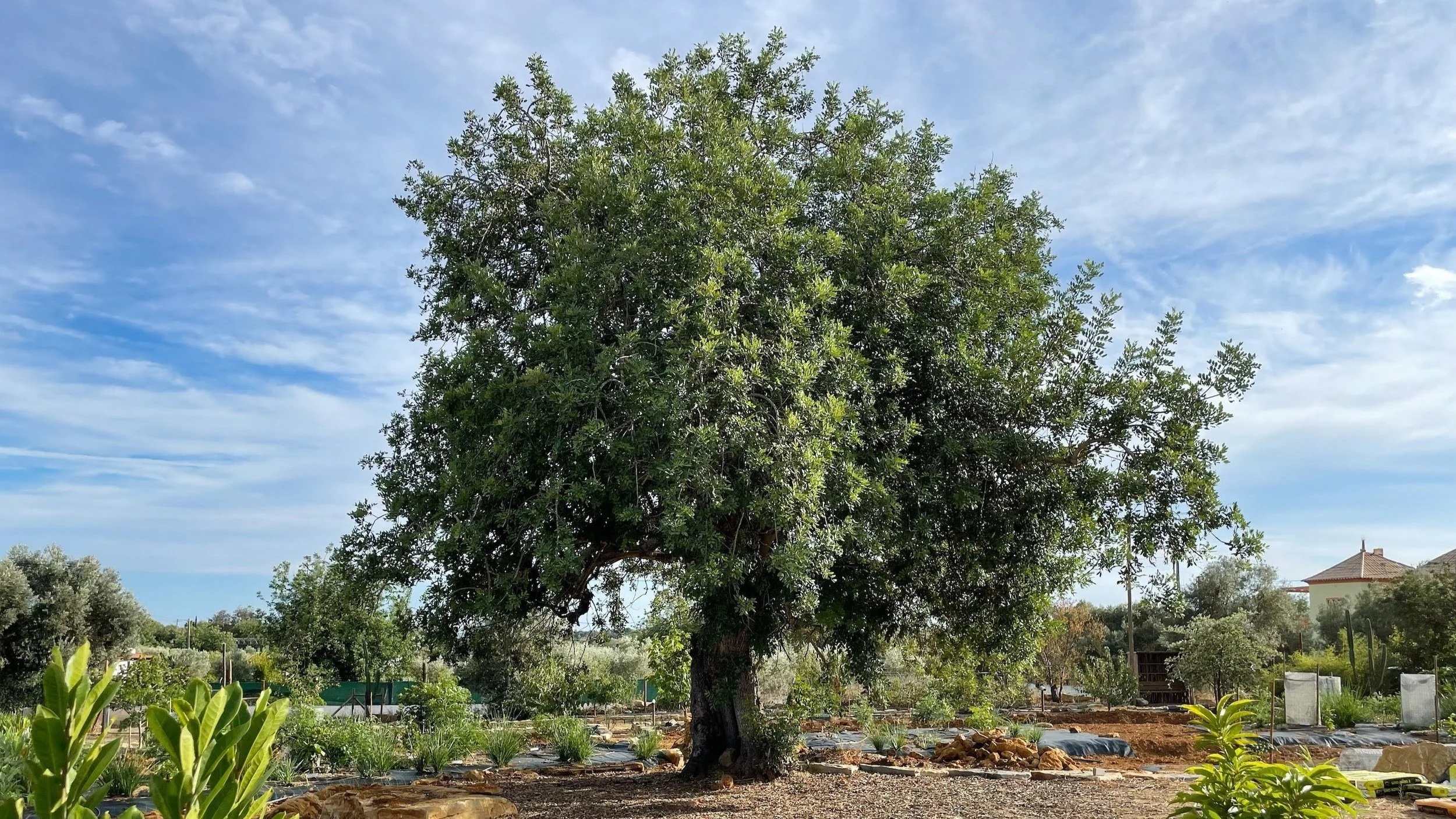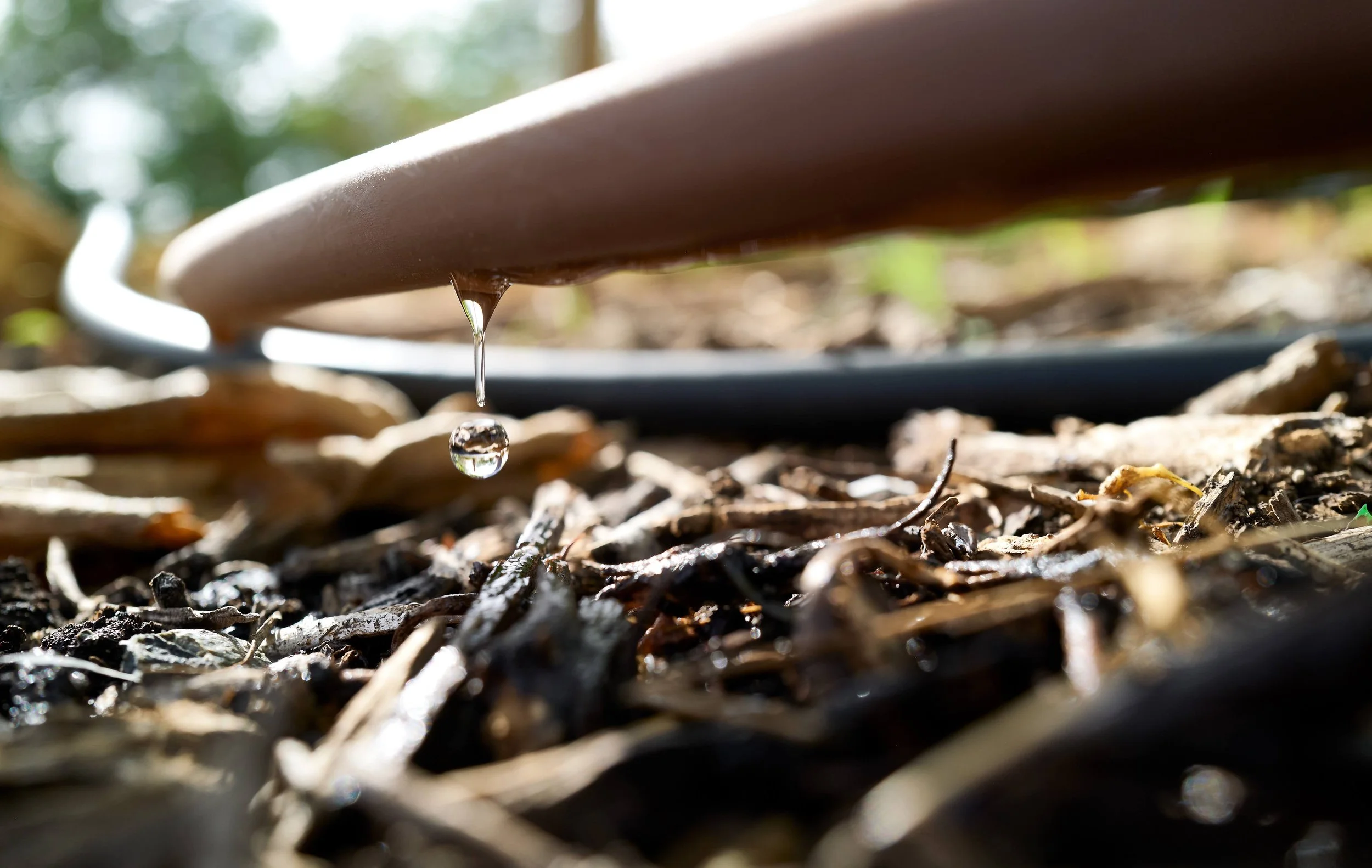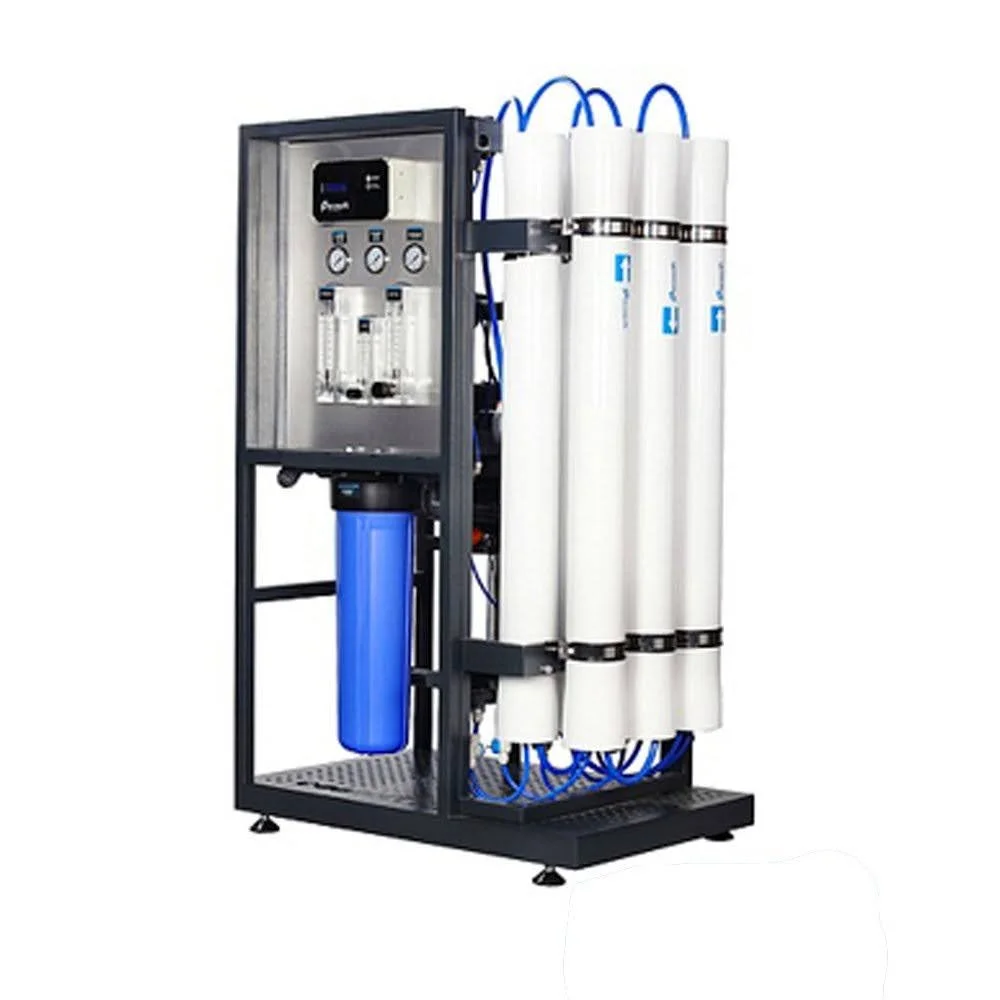Salinity and Edible Plants
Salty borehole water… this might concern you!
In the Mediterranean, rising water demand often exceeds available resources, leading to unsustainable management and increased salinity due to seawater intrusion from excessive aquifer pumping.
If you live within a few kilometers of the coast and rely on borehole water, you might be facing a critical challenge. Our consultations with gardens in coastal areas of the Algarve (up to 10 kilometers from the sea) have revealed that borehole water is gradually becoming saline. This subtle increase in salinity can have significant long-term effects on your plants, making it essential to consider salt-tolerant species and appropriate irrigation techniques.
Without knowing it, you might be using borehole water that is in fact slowly damaging your plants.
Check out our detailed articles below to find out more about the issue and what you can do to tackle it.
With the assistance of a Belgian agronomist, the Orchard of Flavours Botanical Garden is already adding relevant salt tolerance data regarding all our perennial edible plants to its open-source database.
How Salinity Affects Plants
Let’s have a look at the many negative impacts that saline water irrigation might be having on your plants.
Measuring Salinity in Your Land
Test your water and determine its concentration level of dissolved salts.
Solution I:
Grow Salt-Tolerant Crops
Discover what edible plant species remain productive even in saline conditions.
Solution II:
How to Mitigate Salinity
Learn the right irrigation and soil management techniques for saline conditions.
Solution III:
Desalinate Your Water
Another method to face salinity is to purify water by a process called Reverse Osmosis.
Sources to go further:
The use of saline waters for crop production - FAO paper, very complete and detailed:
https://www.fao.org/4/T0667E/T0667E00.htmWater salinity and plant irrigation from the Government of Western Australia:
https://www.agric.wa.gov.au/water-management/water-salinity-and-plant-irrigation“Saline irrigation management for a sustainable use” study, to understand in more detail the irrigation mechanisms:
https://om.ciheam.org/om/pdf/b53/00800750.pdf“Managing Saline and Sodic Soils and Irrigation Water”, Utah State University, for very thorough information about leaching:
https://extension.usu.edu/irrigation/research/managing-saline-and-sodic-soils

